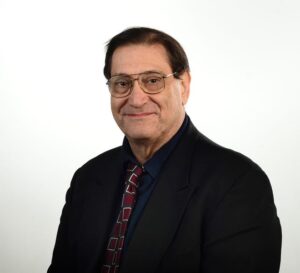From the Heart with Rabbi Liebowitz
Turn it, and turn it, for everything is in it. Reflect on it and grow old and gray with it. Don’t turn from it, for nothing is better than it. (Pirkey Avot chapter 5) Ben Bag-Bag.
Dear Friends,
At this time of writing, we are well into reading from the book of Deuteronomy. It is largely a farewell speech by Moses as the People of Israel are about to enter the Promised Land. Its title differs from the Hebrew Devarim which simply means Matters and connotes Divine utterances. The Western title Deuteronomy does indeed capture the theme of the book as well for the book is filled with repetitions, most prominently another version of the Ten Commandments. Readers are often perplexed by this repetition. I think of the apparent redundancy as consistent with the modern Hebrew saying – “I have already seen this movie!” A deeper look, however, will allow the reader to take note of subtle differences which offer some exquisite meanings not found in the previous version.
As we begin our calendrical sojourn to the High Holy Days in the late summer as our tradition bids us to do, I anticipate the liturgy in our Prayer book, the Machzor. The late Rabbi Richard J. Israel author of “the Kosher Pig and other Curiosities of Modern Jewish Life” told the anecdote of the Jew who was seen ripping out a page from the High Holy Day prayer book. Facing rebuke by another member of the community, he said: “It is my custom that the week before the New Year I rip out a single page out of our Machzor. Though I plan to live as long as Moses did, (120 years) there would still be thousands of pages left to omit even if I were to live to the age of Methuselah. (1000 years)
Our A.D.D, culture surely encourages brevity. Just consider the fifteen-minute segments in our regular TV shows punctuated by commercials and previews. In my youth my Rabbi would offer his High Holy Day sermon which would go on for at least forty-five minutes. What was the fifteen minutes introduction is now the standard length of any rabbinical talk. Any longer than that would prompt some members of the flock to point comically to their watch as a not too subtle reminder it was time to wrap things up. Fair enough as most of us in our culture do not have what Germans called Sitzfleish. Or as a modern quip would have it – “The mind can absorb no more than the seat can endure!” Many a Jewish visitor to Protestant Churches are impressed by the brevity of the service. Not so much at a full Catholic Mass in which you can likewise grow fungus by the time it is over. Our 24 hours Yom Kippur marathon does contain numerous repetitious prayers causing not a few eye-rolls when hearing Avinu Malkeinu yet once more.
The above quote by the rabbinic sage and disciple of Hillel the Elder some two thousand years ago is wise as it is ironic. He offers the imperative that we engage in repetition as you never know what things you may have missed the first time. Why ironic? Aside from this single maxim encouraging a second or even third look he is not mentioned any where else in the Talmud. His teachings were quite brief. My seventh grade English teacher told me that one would do well to re-read Huck Finn every ten years as we all have new eyes as the years pass. It is also the same for viewing classic films such as The Graduate. In my youth I saw Mrs. Robinson as a villainous character. As the years have passed, I now see her as a pained, almost sympathetic figure compromised by the choices she made in her youth.
Looking forward to seeing you at the High Holy days again and again and again and again, if not sooner!
Rabbi Yossi Liebowitz, D.D.

